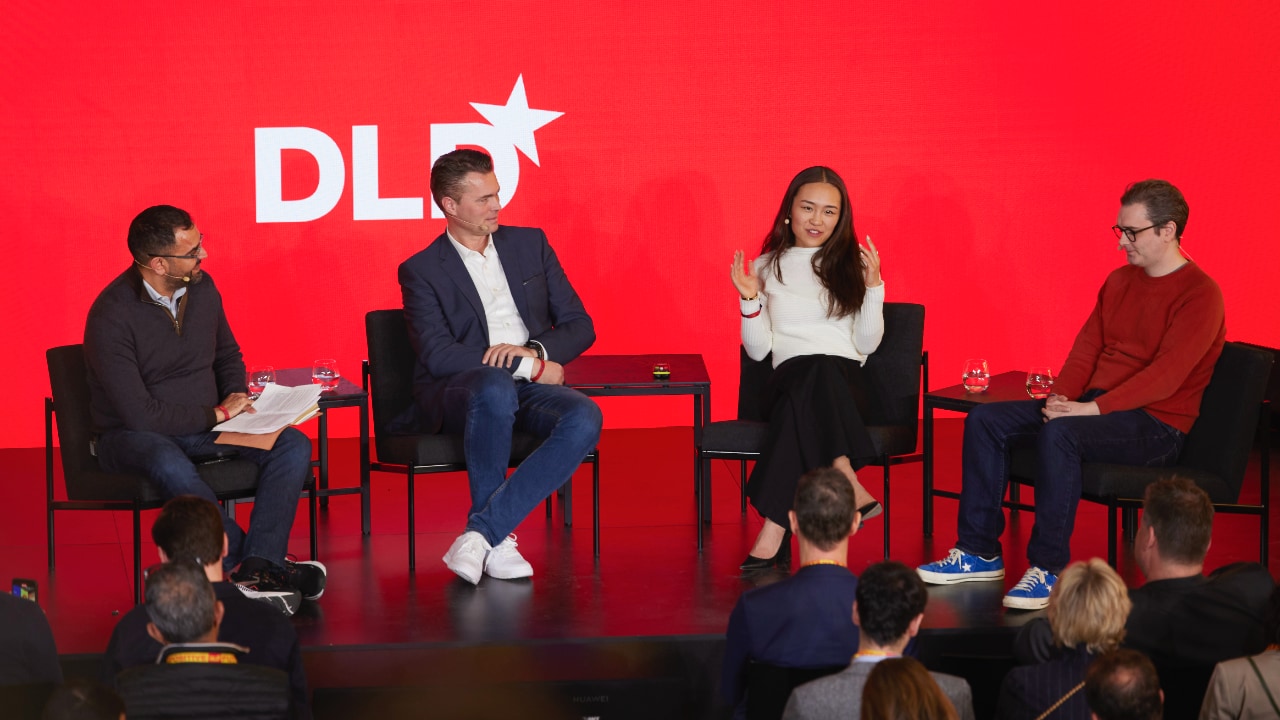AI agents are evolving beyond simple chatbots into systems that can take meaningful action in the human world. In this DLD25 session, moderated by Azeem Azhar (Exponential View), industry experts discuss the scope of possibilities, as well as the implications, of this latest AI trend.
ChatGPT is not an AI agent because “you basically just talk to it”, Llion Jones, the founder of Sakana AI, says. What makes agents different is that they can complete tasks independently, he explains. “This requires you to ask the language model to take several steps to do what it needs to do, and sometimes it needs to use tools in order to get you there.”
Nancy Xu, CEO and founder of Moonhub AI, describes agents as “digital coworkers” designed to handle tedious tasks that humans dislike. “Most of you probably don’t like a couple of aspects of your job”, she says. “And that’s where I think the opportunity for AI agents really will be coming.”
Her company builds AI recruiters that can identify qualified candidates at a scale that exceeds “human bandwidth” limitations, she says, adding, “I think we can have superhuman experiences that enable companies and organizations to be even more successful.”
Andreas Hufenstuhl, a data-analytics expert with PwC, agrees that there’s a need for automation in repetitive tasks, such as creating PowerPoint presentations –but agents must align with organizational processes and regulations, he says. “There’s risk and regulations that need to be considered, there’s IT standards that need to be considered”, Hufenstuhl notes.
An additional hurdle will be human reluctance to embrace their new digital helpers, Hufenstuhl believes. “I think the biggest problem is still that the humans need to be convinced”, he says, which requires building a corporate environment that encourages learning how the technology works and being allowed to experiment with it.
Watch the video for further insights into the practical integration of AI agents, regulation and the reliability of the technology.






